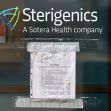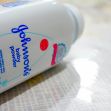An Illinois medical device sterilization company has been ordered to pay $363 million to a cancer survivor who lived in the same community where the company’s plant was based.
The lawsuit was brought forward by Susan Kamuda, and her complaint is just one of over 700 that accused the company, Sterigenics, of using the known carcinogen ethylene oxide to sterilize medical equipment in their Willowbrook, Illinois, plant.
In the several decades that the company has operated in Willowbrook, the known carcinogen has been emitted into the air, contaminating the surrounding area and the residents who live in it according to reports. In her lawsuit, Kamuda claims that residents of Willowbrook and the surrounding area were unknowingly inhaling the carcinogen as it was released into the air. Kamuda testified under oath that had she been aware she was inhaling the toxic chemical, she would not have lived in the town.
In 2007, Kamuda was diagnosed with breast cancer after having lived in Willowbrook for roughly two decades. Kamuda, her husband, and their three children moved into their Willowbrook home in 1985. According to reports, Kamuda’s son has also been diagnosed with lymphoma. Kamuda points the blame of her cancer diagnosis on Sterigenics and their harmful plant emissions.
Kamuda points to recently released government agency data as a source to back up her claims that the carcinogen caused her cancer diagnosis. On August 21, 2018, the U.S. Department of Health and Human Services released a report titled “Evaluation of Potential Health Impacts for Ethylene Oxide Emissions.” The report collected samples of air measurements throughout Willowbrook near the Sterigenics factory. The report confirmed that “residents and workers are exposed to elevated airborne EtO concentrations from facility emissions.” Because of these toxic levels, the report indicated that there was “an elevated cancer risk” for residents and workers in the Willowbrook community. The report added that “hese elevated risks present a public health hazard to these populations.”
The medical sterilization company has pushed back against Kamuda’s lawsuit and other claims that the factory’s chemical emissions are a health hazard for workers and the surrounding community. The company contends that there's no proof that Kamuda’s cancer was linked to their facility's emissions. The company explained in the statement that “Sterigenics has and will continue to vigorously defend against these claims. Sterigenics operates safely and in compliance with regulatory requirements and continues to invest in voluntary emission controls to perform better than even the strictest of regulations, as it continues to fulfill its critical role in healthcare.”
Kamuda’s case is one of several hundred that are waiting to be heard. After the Cook County jury ruled in favor of Kamuda, Sterigenics announced its intention to appeal the decision.






